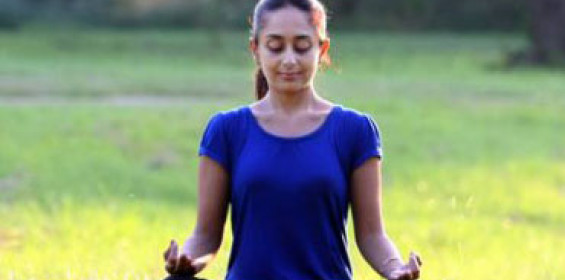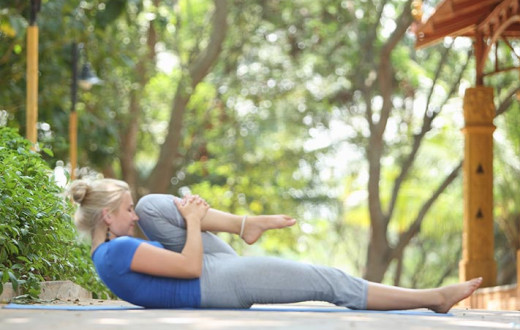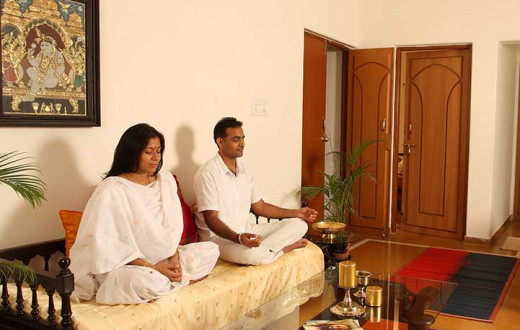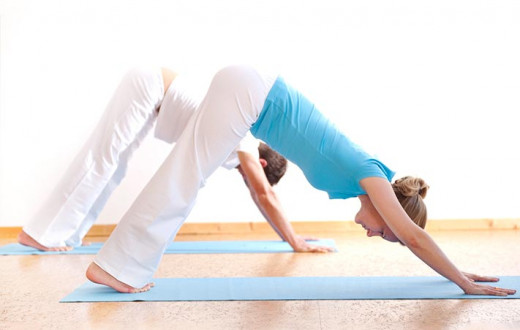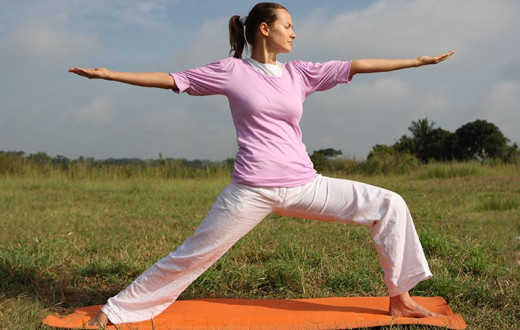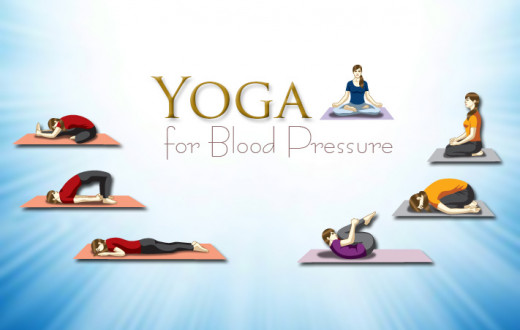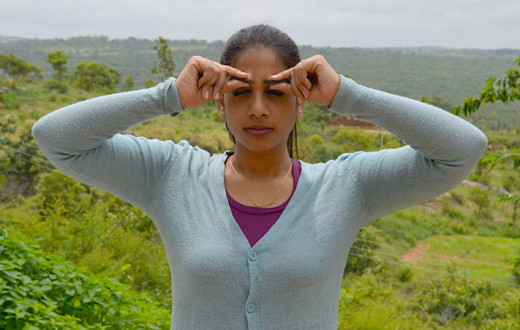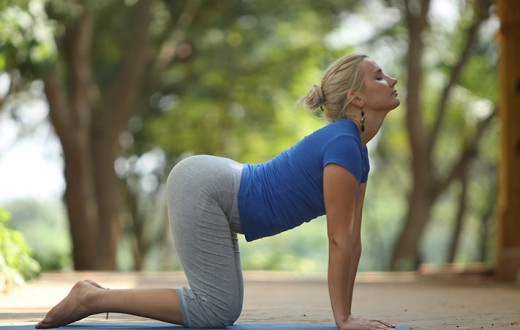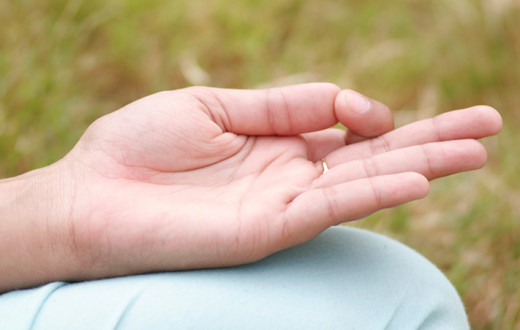Many of the yogic poses/asana and exercises are aimed at improving the functioning of specific organs of the body.
Yoga provides a series of eye exercises that improves the functioning of the eyes and helps to overcome various eye-related problems, such as
- Myopia or short sightedness
- Hypermetropia or long sightedness
- Various other eye-related disorders
In the present-day world, about 35% of the population suffers from myopia and hypermetropia in varying degrees.
Therapeutic yoga techniques include exercises such as
- Palming
- Blinking
- Changing focus of eyes from side to side simultaneously
- Changing focus of eyes forward and sideways simultaneously
- Rotational viewing
- Viewing upwards and down simultaneously
- Preliminary nose tip gazing
- Near and distant viewing
These disorders are usually overcome using powerful glasses and lenses which correct the refractive errors of the eye. However, one needs to understand that glasses never cure bad eyesight. In fact, using powerful glasses can worsen eye problems. Therefore, one should use glasses only when absolutely necessary.
Other than a few diseases such as cataract and glaucoma which occur due to bacterial infections, many eye disorders are related to the malfunctioning of the ocular muscles caused by chronic mental and emotional tensions. Yoga techniques help to alleviate various disorders related to defects in the eye muscles such as myopia and hypermetropia.
Practicing these yoga eye exercises regularly for a few months can go a long way in facilitating the normal functioning of our eyes.
Note: Before starting these exercises, it is always recommended to splash your eyes with cold water a few times. Remember to keep the head and spine straight throughout the exercises.
Palming
- Sit quietly with eyes closed and take some deep breaths to relax completely.
- Rub the palms of your hands vigorously, until they become warm and place the palms gently over your eyelids.
- Feel the warmth of the palms being transferred onto the eyes and the eye muscles relaxing. Your eyes are being bathed in soothing darkness.
- Stay in this position until the heat from the hands has been completely absorbed by the eyes.
- Keeping the eyes closed, lower the hands.
- Once again rub the palms and repeat the process at least three times.
Blinking

- Sit comfortably with your eyes open.
- Blink around 10 times very quickly.
- Close your eyes and relax for 20 seconds. Slowly take your attention to your breath.
- Repeat this exercise about 5 times.
Sideways viewing

- Sit with legs straight in front of the body.
- Now lift the arms keeping your fist closed and your thumbs pointing upward.
- Look at a point straight in front of you in level with your eyes.
- Keep the head in this fixed position, focus on the following one after the other, by shifting your vision to the
- Space between the eyebrows
- Left thumb
- Space between the eyebrows
- Right thumb
- Space between the eyebrows
- Left thumb
- Repeat this exercise 10 to 20 times.
- After completing this exercise close your eyes and rest.
Observe the following breathing pattern as you perform the above exercise
- Inhale in the neutral position
- Exhale while looking to the side.
- Inhale and come back to the center.
Front and sideways viewing
- Sit with legs straight in front of the body
- Then place the left [closed] fist on the left knee ensuring that the thumb points upwards.
- Look at a point straight in front and in level with your eyes.
- Keeping the head in this fixed position.
- Breathing out, focus your eyes on the left thumb.
- Breathing in, focus your eyes at a point in front and in level with your eyes.
- Repeat the same process with the right thumb.
- Then close your eyes and rest.
Rotational viewing
- Sit with legs straight in front of your body.
- Place the left hand on the left knee.
- Hold the right fist above the right knee, with the thumb pointing upwards. Keep the elbow straight.
- Now keeping the head still, focus your eyes on the thumb.
- Make a circle with the thumb, keeping the elbow straight.
- Repeat this exercise five times each in clockwise and anti-clockwise direction.
- Repeat the process with the left thumb.
- Close and rest the eyes and relax completely.
Observe the following breathing pattern during this exercise
- Inhale while completing the upper arc of the circle.
- Exhale while completing the lower arc.
Up and down viewing
- Sit with legs straight in front of your body.
- With both the thumbs pointing upwards, place both the fists on the knees.
- Slowly raise the right thumb keeping the arms straight. Follow the motion of the thumb upwards with the eyes.
- When the thumb is raised to the maximum, gradually bring it down to the starting position and continue to keep the eyes focused on the thumb all the while keeping the head still.
- Repeat the same process with the left thumb.
- Practice this 5 times with each thumb.
- The head and the spine should be kept straight throughout.
- Close the eyes and relax.
Observe the following breathing pattern as you perform the above exercise
- Inhale while raising the eyes.
- Exhale while lowering the eyes.
Preliminary nose tip gazing
- Sit in a cross-legged pose.
- Lift the right arm straight directly in front of the nose.
- Making a fist with the right hand, keep your thumb pointing upward.
- Focus both eyes on the tip of the thumb.
- Now bend the arm and gradually bring the thumb to the tip of the nose, all the while having the eyes focused on the tip of the thumb.
- Remain in this position for a while with the thumb held at the tip of the nose with the eyes focused there.
- Continuing to gaze at the tip of the thumb, gradually straighten the arm.
- This constitutes a single round.
- Perform at least five such rounds.
Observe the following breathing pattern as you perform the above exercise
- Breathe in while the thumb is pulled to the tip of the nose.
- Retain inside while holding the thumb at the tip of the nose.
- Breathe out as the arm is straightened.
Near and distant viewing
- Stand or sit by an open window with a clear view of the horizon. Keep the arms by your side.
- Focus on the tip of the nose for 5-10 seconds.
- Repeat this for about 10 to 20 times.
- Close and relax the eyes.
Observe the following breathing pattern
- Inhale during close viewing.
- Exhale during distant viewing.
After completing all the above exercises, lie in shavasan (corpse pose) for a few minutes and relax completely. Breathe gently and normally, and do not resist any thoughts or sensations during the exercise.
In the present-day world, about 35 % of the population suffers from myopia and hypermetropia in varying degrees. These disorders are usually overcome using powerful glasses and lenses which correct the refractive errors of the eye. However, one needs to understand that glasses never cure bad eyesight. In fact, using powerful glasses can worsen eye problems. Therefore, one should use glasses only when absolutely necessary.
Other than a few diseases such as cataract and glaucoma which occur due to bacterial infections, many eye disorders are related to the malfunctioning of the ocular muscles caused by chronic mental and emotional tensions. Yoga techniques help to alleviate various disorders related to defects in the eye muscles such as myopia and hypermetropia. Practicing these exercises regularly for a few months can go a long way in facilitating the normal functioning of our eyes.
<< Yoga Postures Lying On Stomach Standing Yoga Asana >>
Yoga practice helps develop the body and mind bringing a lot of health benefits yet is not a substitute for medicine. It is important to learn and practice yoga postures under the supervision of a trained Sri Sri Yoga teacher. In case of any medical condition, practice yoga postures after consulting a doctor and a Sri Sri Yoga teacher. Find a Sri Sri Yoga course at an Art of Living Center near you. Do you need information on courses or share feedback? Write to us at info@artoflivingyoga.org









